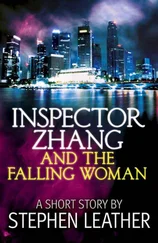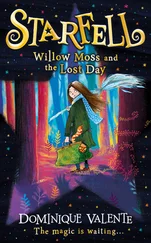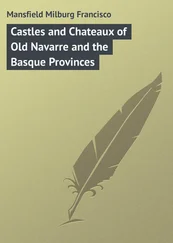Ursula Le Guin - Old Music and the Slave Women
Здесь есть возможность читать онлайн «Ursula Le Guin - Old Music and the Slave Women» весь текст электронной книги совершенно бесплатно (целиком полную версию без сокращений). В некоторых случаях можно слушать аудио, скачать через торрент в формате fb2 и присутствует краткое содержание. Жанр: Фантастика и фэнтези, на английском языке. Описание произведения, (предисловие) а так же отзывы посетителей доступны на портале библиотеки ЛибКат.
- Название:Old Music and the Slave Women
- Автор:
- Жанр:
- Год:неизвестен
- ISBN:нет данных
- Рейтинг книги:4 / 5. Голосов: 1
-
Избранное:Добавить в избранное
- Отзывы:
-
Ваша оценка:
- 80
- 1
- 2
- 3
- 4
- 5
Old Music and the Slave Women: краткое содержание, описание и аннотация
Предлагаем к чтению аннотацию, описание, краткое содержание или предисловие (зависит от того, что написал сам автор книги «Old Music and the Slave Women»). Если вы не нашли необходимую информацию о книге — напишите в комментариях, мы постараемся отыскать её.
and after that imported to fb2 by soshial (21.05.2008) http://torrents.ru/forum/viewtopic.php?t=463754
Old Music and the Slave Women — читать онлайн бесплатно полную книгу (весь текст) целиком
Ниже представлен текст книги, разбитый по страницам. Система сохранения места последней прочитанной страницы, позволяет с удобством читать онлайн бесплатно книгу «Old Music and the Slave Women», без необходимости каждый раз заново искать на чём Вы остановились. Поставьте закладку, и сможете в любой момент перейти на страницу, на которой закончили чтение.
Интервал:
Закладка:
He could not go far. Sometimes he felt like a bug on a beach. The part of the house that was still usable was huge, the gardens were vast, the people were very few. There were the six men who had brought him, and five or six more who had been here, commanded by the heavyset man Tualenem. Of the original asset population of the house and estate there were ten or twelve, a tiny remnant of the house-staff of cooks, cooks' helpers, washwomen, chambermaids, ladies' maids, bodyservants, shoe-polishers, window-cleaners, gardeners, path-rakers, waiters, footmen, errandboys, stablemen, drivers, use-women and useboys who had served the owners and their guests in the old days. These few were no longer locked up at night in the old house-asset compound where the crouchcage was, but slept in the courtyard warren of stables for horses and people where he had been kept at first, or in the complex of rooms around the kitchens. Most of these remaining few were women, two of them young, and two or three old, frail-looking men.
He was cautious of speaking to any of them at first lest he get them into trouble, but his captors ignored them except to give orders, evidently considering them trustworthy, with good reason. Troublemakers, the assets who had broken out of the compounds, burned the great house, killed the bosses and owners, were long gone: dead, escaped, or reenslaved with a cross branded deep on both cheeks. These were good dusties. Very likely they had been loyal all along. Many bondspeople, especially personal slaves, as terrified by the Uprising as their owners, had tried to defend them or had fled with them. They were no more traitors than were owners who had freed their assets and fought on the Liberation side. As much, and no more.
Girls, young field hands, were brought in one at a time as use-women for the men. Every day or two the two young men who had tortured him drove a landcar off in the morning with a used girl and came back with a new one.
Of the two younger house bondswomen, one called Kamsa always carried her little baby around with her, and the men ignored her. The other, Heo, was the scared one who had waited on him. Tualenem used her every night. The other men kept hands off.
When they or any of the bondspeople passed Esdan in the house or outdoors they dropped their hands to their sides, chin to the chest, looked down, and stood still: the formal reverence expected of personal assets facing an owner.
"Good morning, Kamsa."
Her reply was the reverence.
It had been years now since he had been with the finished product of generations of slavery, the kind of slave described as "perfectly trained, obedient, selfless, loyal, the ideal personal asset," when they were put up for sale. Most of the assets he had known, his friends and colleagues, had been city rentspeople, hired out by their owners to companies and corporations to work in factories or shops or at skilled trades. He had also known a good many field hands. Field hands seldom had any contact with their owners; they worked under gareot bosses, and their compounds were run by cutfrees, eunuch assets. The ones he knew had mostly been runaways protected by the Hame, the underground railroad, on their way to independence in Yeowe. None of them had been utterly deprived of education, options, any imagination of freedom, as these bondspeople were. He had forgotten what a good dusty was like. He had forgotten the utter impenetrability of the person who has no private life, the intactness of the wholly vulnerable.
Kamsa's face was smooth, serene, and showed no feeling, though he heard her sometimes talking and singing very softly to her baby, a joyful, merry little noise. It drew him. He saw her one afternoon sitting at work on the coping of the great terrace, the baby in its sling on her back. He limped over and sat down nearby. He could not prevent her from setting her knife and board aside and standing head and hands and eyes down in reverence as he came near.
"Please sit down, please go on with your work," he said. She obeyed. "What's that you're cutting up?"
"Dueli, master," she whispered.
It was a vegetable he had often eaten and enjoyed. He watched her work. Each big, woody pod had to be split along a sealed seam, not an easy trick; it took a careful search for the opening point and hard, repeated twists of the blade to open the pod. Then the fat edible seeds had to be removed one by one and scraped free of a stringy, clinging matrix.
"Does that part taste bad?" he asked.
"Yes, master."
It was a laborious process, requiring strength, skill, and patience. He was ashamed. "I never saw raw dueli before," he said.
"No, master."
"What a good baby," he said, a little at random. The tiny creature in its sling, its head lying on her shoulder, had opened large bluish-black eyes and was gazing vaguely at the world. He had never heard it cry. It seemed rather unearthly to him, but he had not had much to do with babies.
She smiled.
"A boy?"
"Yes, master."
He said, "Please, Kamsa, my name is Esdan. I'm not a master. I'm a prisoner. Your masters are my masters. Will you call me by my name?"
She did not answer.
"Our masters would disapprove."
She nodded. The Werelian nod was a tip-back of the head, not a bob down. He was completely used to it after all these years. It was the way he nodded himself. He noticed himself noticing it now. His captivity, his treatment here, had displaced, disoriented him. These last few days he had thought more about Hain than he had for years, decades. He had been at home on Werel, and now was not. Inappropriate comparisons, irrelevant memories. Alienated.
"They put me in the cage," he said, speaking as low as she did and hesitating on the last word. He could not say the whole word, crouchcage.
Again the nod. This time, for the first time, she looked up at him, the flick of a glance. She said soundlessly, "I know," and went on with her work.
He found nothing more to say.
"I was a pup, then I did live there," she said, with a glance in the direction of the compound where the cage was. Her murmuring voice was profoundly controlled, as were all her gestures and movements. "Before that time the house burned. When the masters did live here. They did often hang up the cage. Once, a man for until he did die there. In that. I saw that."
Silence between them.
"We pups never did go under that. Never did run there."
"I saw the… the ground was different, underneath," Esdan said, speaking as softly and with a dry mouth, his breath coming short. "I saw, looking down. The grass. I thought maybe... where they..." His voice dried up entirely.
"One grandmother did take a stick, long, a cloth on the end of that, and wet it, and hold it up to him. The cutfrees did look away. But he did die. And rot some time."
"What had he done?"
" Enna ," she said, the one-word denial he'd often heard assets use—i don't know, I didn't do it, I wasn't there, it's not my fault, who knows. . . .
He'd seen an owner's child who said "enna" be slapped, not for the cup she broke but for using a slave word.
"A useful lesson," he said. He knew she'd understand him. Underdogs know irony like they know air and water.
"They did put you in that, then I did fear," she said.
"The lesson was for me, not you, this time," he said.
She worked, carefully, ceaselessly. He watched her work. Her downcast face, clay-color with bluish shadows, was composed, peaceful. The baby was darker-skinned than she. She had not been bred to a bondsman, but used by an owner. They called rape use. The baby's eyes closed slowly, translucent bluish lids like little shells. It was small and delicate, probably only a month or two old. Its head lay with infinite patience on her stooping shoulder.
No one else was out on the terraces. A slight wind stirred in the flowering trees behind them, streaked the distant river with silver.
Читать дальшеИнтервал:
Закладка:
Похожие книги на «Old Music and the Slave Women»
Представляем Вашему вниманию похожие книги на «Old Music and the Slave Women» списком для выбора. Мы отобрали схожую по названию и смыслу литературу в надежде предоставить читателям больше вариантов отыскать новые, интересные, ещё непрочитанные произведения.
Обсуждение, отзывы о книге «Old Music and the Slave Women» и просто собственные мнения читателей. Оставьте ваши комментарии, напишите, что Вы думаете о произведении, его смысле или главных героях. Укажите что конкретно понравилось, а что нет, и почему Вы так считаете.












